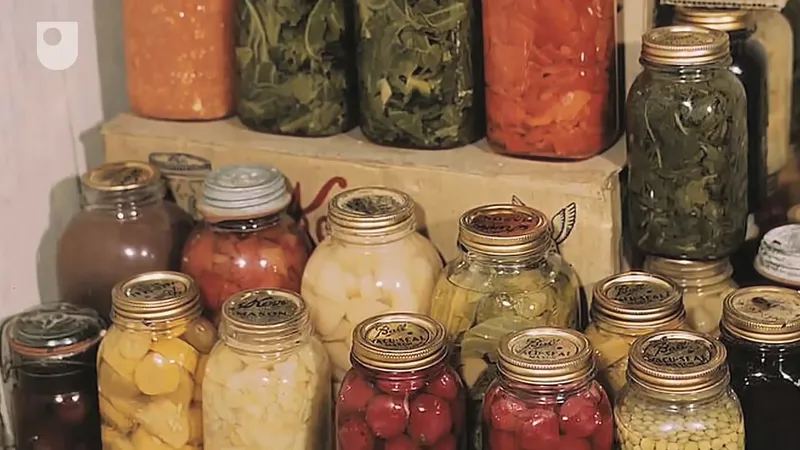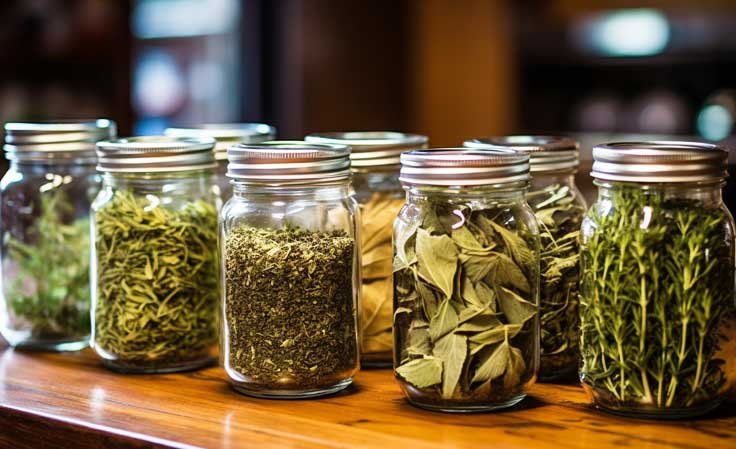Preserving and Storing Traditional Herbs Effectively
Traditional herbs have been used for centuries in various cultures for their medicinal and culinary benefits. However, to ensure these herbs maintain their potency and flavor, proper preservation and storage methods are essential. In this article, we will explore effective ways to preserve and store traditional herbs, ensuring their longevity and medicinal value.

1. Drying Herbs for Long-Term Storage
Drying is one of the most common and effective methods for preserving traditional herbs. When done correctly, drying can extend the shelf life of herbs while maintaining their medicinal properties. Most herbs, such as thyme, oregano, and rosemary, dry well and retain their essential oils.
- How It Works: Drying removes moisture from the herbs, which prevents the growth of mold and bacteria. By storing dried herbs in airtight containers, you protect them from light, heat, and humidity, which can degrade their quality.
- How to Do It: Hang herbs in small bundles upside down in a dry, well-ventilated area. Alternatively, use a food dehydrator or an oven on the lowest setting to dry herbs more quickly. Once dry, store herbs in glass jars or sealed bags away from direct sunlight.
2. Freezing Herbs for Fresh Use
Freezing is another great way to preserve the flavor and medicinal properties of herbs like basil, mint, and parsley. Freezing locks in the freshness and nutrients of the herbs, making them easy to use throughout the year.
- How It Works: Freezing preserves the structure and chemical compounds of herbs. While freezing may alter the texture of some herbs, it doesn’t affect their medicinal potency.
- How to Do It: Wash and chop the herbs before freezing. You can freeze herbs in ice cube trays with water or olive oil to preserve them in portions. Alternatively, wrap the herbs in plastic wrap or place them in airtight containers and store them in the freezer.
3. Storing Herbs in Oil or Vinegar
For certain herbs like rosemary, thyme, and sage, storing them in oil or vinegar can help preserve their medicinal qualities while creating flavorful infusions. This method is particularly useful for culinary herbs, and the oils or vinegars can also be used in cooking.
- How It Works: The oil or vinegar acts as a preservative, preventing the herbs from spoiling while infusing the liquid with their flavors and medicinal compounds.
- How to Do It: Pack fresh herbs into clean, sterilized jars and cover them with olive oil or vinegar. Ensure the herbs are completely submerged to avoid exposure to air. Store the jars in a cool, dark place for several weeks. Strain the herbs before use to avoid bitterness.
4. Using Herb-Infused Salts or Sugars
Herb-infused salts or sugars can be an excellent way to preserve traditional herbs while creating unique flavors for culinary use. This method is particularly useful for herbs like lavender, rosemary, and thyme, which can be paired with salt or sugar to create aromatic blends.
- How It Works: The salt or sugar helps to draw out moisture from the herbs, preserving them while also imparting their flavor into the mixture. This method is ideal for enhancing both savory and sweet dishes.
- How to Do It: Finely chop fresh herbs and mix them with salt or sugar in a bowl. Let the mixture sit for several days to allow the herbs to infuse. Store the herb-infused salt or sugar in airtight containers to preserve the flavor and medicinal benefits.
5. Storing Dried Herbs in Airtight Containers
Proper storage is just as important as the drying process. Once herbs are dried, it’s essential to store them in a way that protects them from exposure to air, light, and moisture, all of which can cause the herbs to lose their potency.
- How It Works: Airtight containers prevent moisture and air from entering, which can cause dried herbs to degrade. Keeping dried herbs in a dark, cool place ensures they retain their flavor and medicinal properties for a longer period.
- How to Do It: After drying, place the herbs in glass jars, vacuum-sealed bags, or Mylar bags. Label the containers with the date of storage, and keep them in a pantry, cupboard, or drawer away from heat sources.
Conclusion
Preserving and storing traditional herbs effectively is essential for maintaining their medicinal and culinary value. By drying, freezing, infusing in oil or vinegar, or creating herb-infused salts and sugars, you can enjoy these herbs throughout the year. Proper storage in airtight containers ensures the herbs stay potent, maintaining their flavor and medicinal properties. Whether for medicinal or culinary use, following these preservation techniques will allow you to make the most of your traditional herbs.



